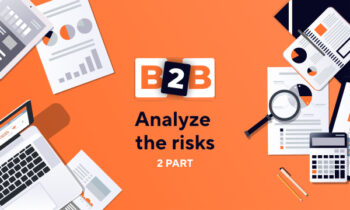What is an e-commerce platform?
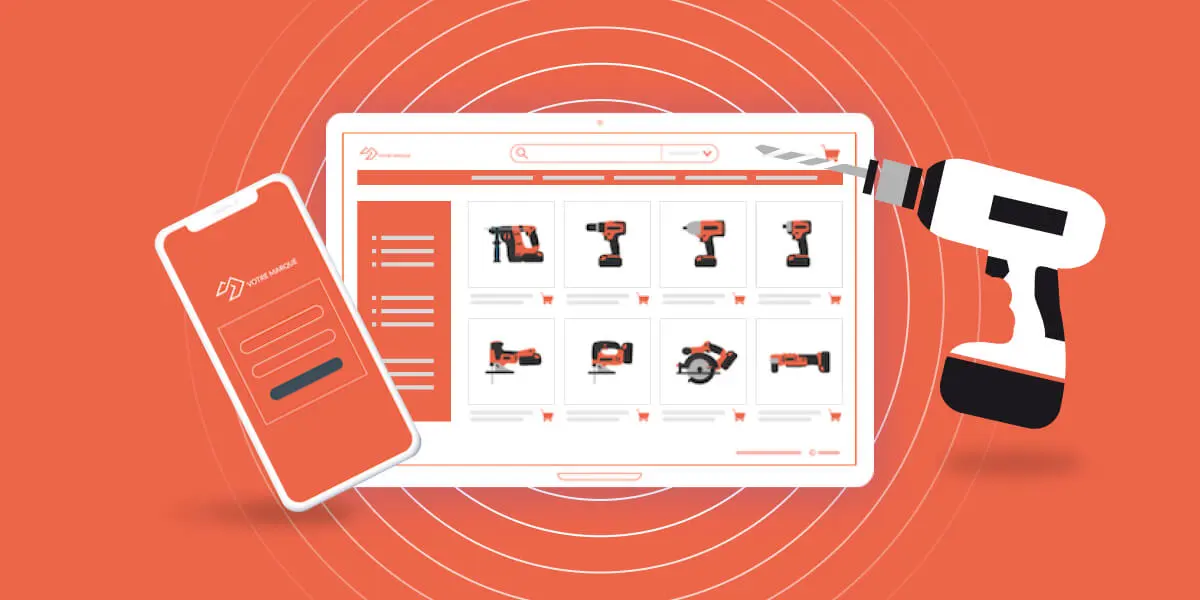
An e-commerce platform is a complete solution for selling products or services online, to individuals or professionals. E-commerce platforms offer highly advanced back-office functionalities: natural referencing, marketing, merchandising, personalised experience, etc.

Definition of an e-commerce platform
An e-commerce platform is a web platform that enables a merchant to sell its products or services on the Internet. An e-commerce site offers a catalogue of products and is equipped with a secure payment system. Customers can therefore buy at any time and from anywhere.
There are 3 types of e-commerce site:
- B2C (Business to Consumer) e-commerce sites, where companies sell to individuals,
- B2B (Business to Business) e-commerce sites, where companies sell to other companies,
- C2C (Consumer to Consumer) e-commerce sites, where individuals trade with other individuals.
A complete e-commerce platform does not just offer products with the option of online payment. In the back office, the e-merchant can manage :
- product logistics (stock management, deliveries, delivery tracking),
- marketing (SEO, up-selling, cross-selling, relaunching abandoned shopping baskets, marketing automation, email marketing AB testing, other integrated sales channels, chat bot, etc.).
A marketplace is any platform that brings together buyers and sellers on the Internet. A marketplace offers the merchant a qualified audience already in place, in exchange for a commission on sales. Here are a few examples of well-known marketplaces: Amazon, La Redoute, Cdiscount, etc.
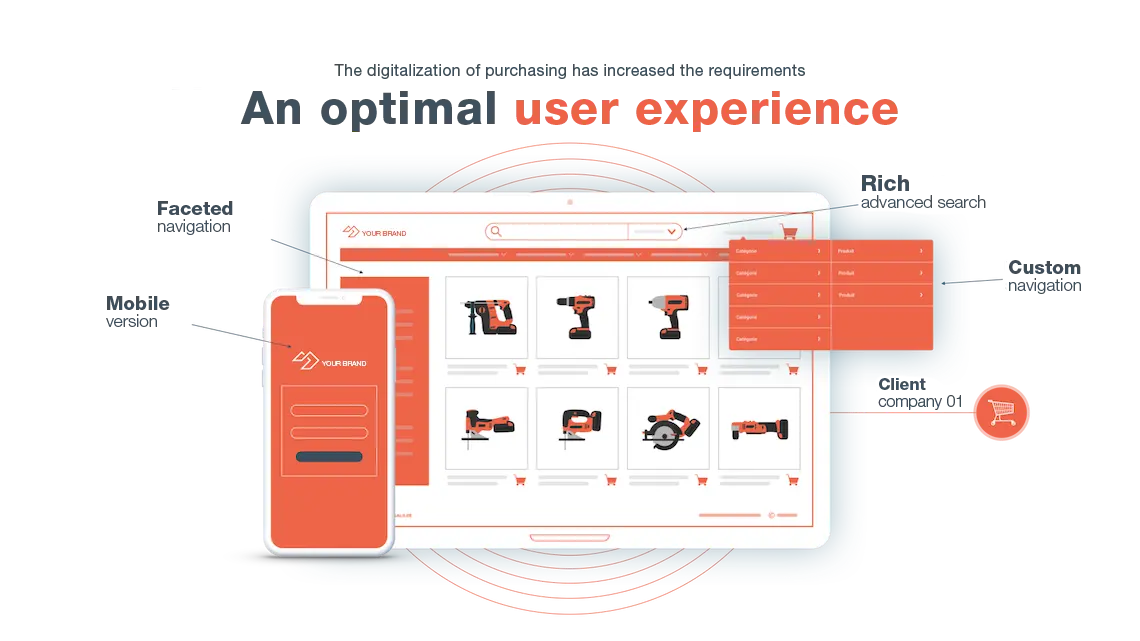
A project?
What are the advantages of an e-commerce platform?
- Don’t miss out on online sales
The growth of online sales is well established. The e-commerce market in France will be worth almost €130 billion by 2021, an increase of 15%. More than 80% of French people buy online, and more than 50% make their purchases from their mobile phones, according to FEVAD.
- Extending your catchment area
An online shop allows you to extend your customer base to a much larger catchment area than a physical shop. If the site is translated into several languages and if the company has put in place the necessary logistics and marketing, it can sell its products all over France, or even Europe or the world.
- Make sales 24/7
Your online shop is open all the time. So you can make sales even on Sundays, bank holidays and at night! Potential customers can access merchant sites from their smartphones anywhere, anytime.
- Manage all processes within a single platform
An e-commerce platform allows you to manage the entire sales process within a single solution, from product promotion and delivery to online payment and stock management.
- Online marketing
When a customer buys from your e-commerce site, they leave all their contact details with you. You can then develop their loyalty by sending them emailings. Thanks to SEO (Search Engine Optimization), the products sold on an e-commerce site can be visible on search engines such as Google or Bing.
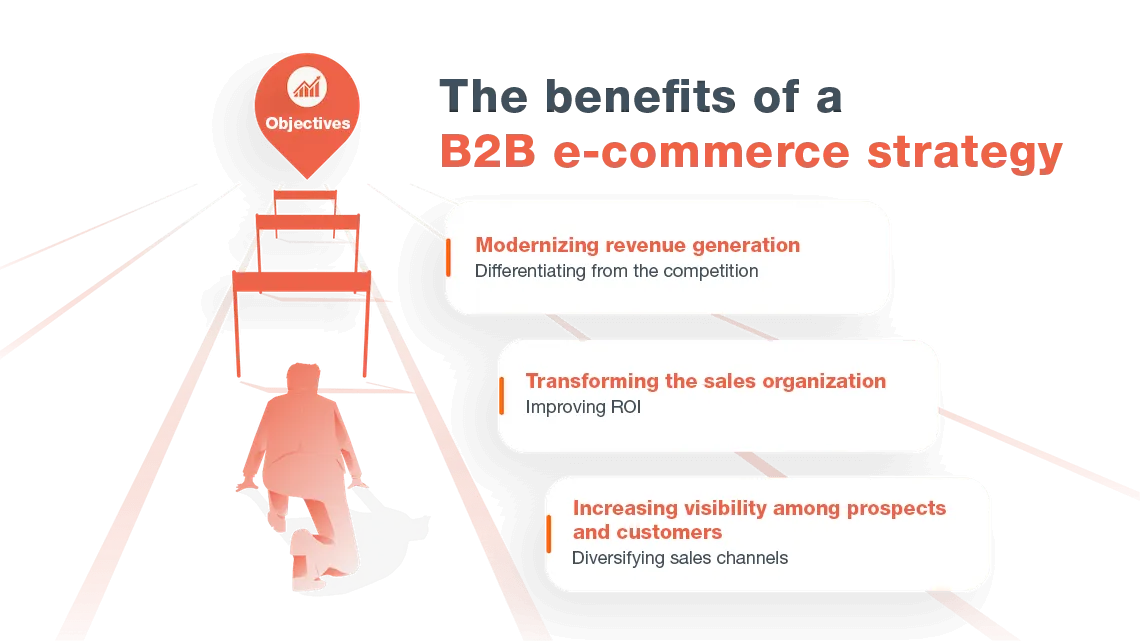
What are the main features of an e-commerce platform?
- A product management solution
Powered by a PIM, e-commerce platforms enable products to be categorised and dynamic filters to be defined, such as sorting by size or colour, displaying products in ascending order of price, and so on. Not to mention product descriptions.
- A flexible content management system
A CMS (Content Management System) integrated into your e-commerce platform will enable you to create new content pages easily, without the need for a developer. A page builder generally allows you to drag and drop elements (block of text, image, video, button, space, etc.) onto your new page.
- An order management system
An order management system handles order tracking, interconnects with the delivery management system and manages e-mail and/or SMS notifications to customers.
- Data security
A merchant site must protect its customers’ data against data leaks and breaches. It must have a system to protect against fraud and DDoS (Distributed Denial of Service) attacks.
- Personalising the customer experience
Differentiation from one e-commerce site to another is usually based on the user experience rather than the product. The most powerful e-commerce platforms offer the possibility of personalising the user experience with tailored product and marketing content.
- Statistics
An e-commerce platform should allow you to view the main statistics: sales by date, product categories, products, etc., visits, conversion rate, basket abandonment rate, etc.
- A stock management system
Stock management must be extremely reliable. The system must be able to know in real time the stock in the warehouse, but also in each of the shops in the distribution network, so as to be able to offer click & collect or home delivery.
- Online payment
An e-commerce platform must accept different types of payment: bank card, Paypal, instant transfer, cheque and sometimes payment in instalments. To do this, you will need to choose a PSP or payment operator such as Worldline, Payplug, Stripe, etc. Transactions must, of course, be secure and comply with PCI DSS security standards.
- A returns management system
The returns management system enables returns to be processed, requests to be approved or refused, returns forms to be sent out and refunds to be made once the goods have been returned.
- Preconceived design
Most e-commerce platforms offer a catalogue of ready-to-use themes (templates), usually categorised by business sector. The vast majority are responsive design.
- Up-selling and cross-selling
An up-selling, cross-selling or intelligent product recommendation system (similar products) can increase the average shopping basket, as well as the conversion rate. Don’t miss out!
- Reviving abandoned shopping baskets
Recovering abandoned shopping baskets is essential for any e-commerce site. It helps to increase the conversion rate and identify any problems in the purchasing tunnel.
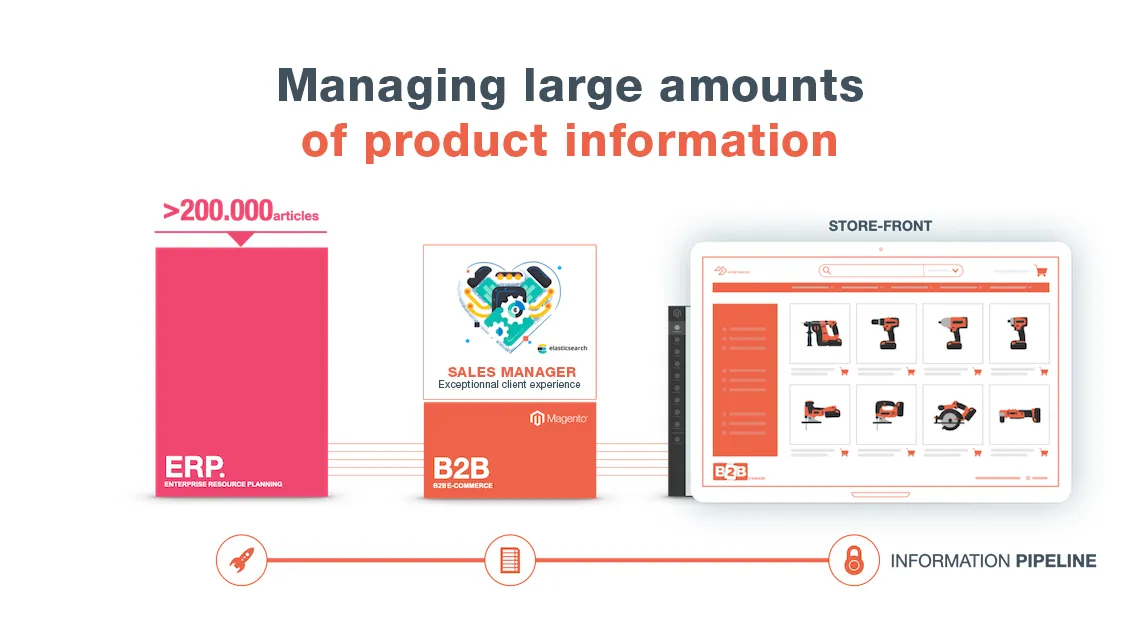
What other solutions should your e-commerce
e-commerce platform integrate with?
Your e-commerce solution will need to be integrated with other solutions to help you manage your online business:
- CRM (Customer Relationship Management) solutions to integrate your e-commerce customer data;
- Emailing and marketing automation solutions to send automated promotional emailings to your customers;
- Syndication solution, enabling you to distribute your products to marketplaces and shopping engines;
- Google solutions and tools (Google Tag Manager, Google Analytics 4, etc.);
- Stock management system.
Request your personalised audit
Why choose DATASOLUTION to deploy your e-commerce platform?
At DATASOLUTION, we believe that every company deserves a tailor-made e-commerce solution, capable of meeting its specific needs and propelling its business to new horizons. Whether you are a novice or a veteran of online commerce, our e-commerce solutions are designed to adapt to all your ambitions.
DATASOLUTION has been designing, developing and upgrading e-commerce platforms for over 20 years. Our solutions give you the tools you need to optimise your processes, improve your customer experience and maximise your sales.
Do you need help to set up your e-commerce platform? Ask our experts!


